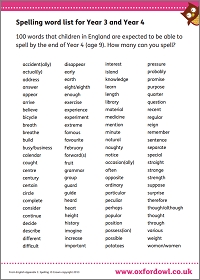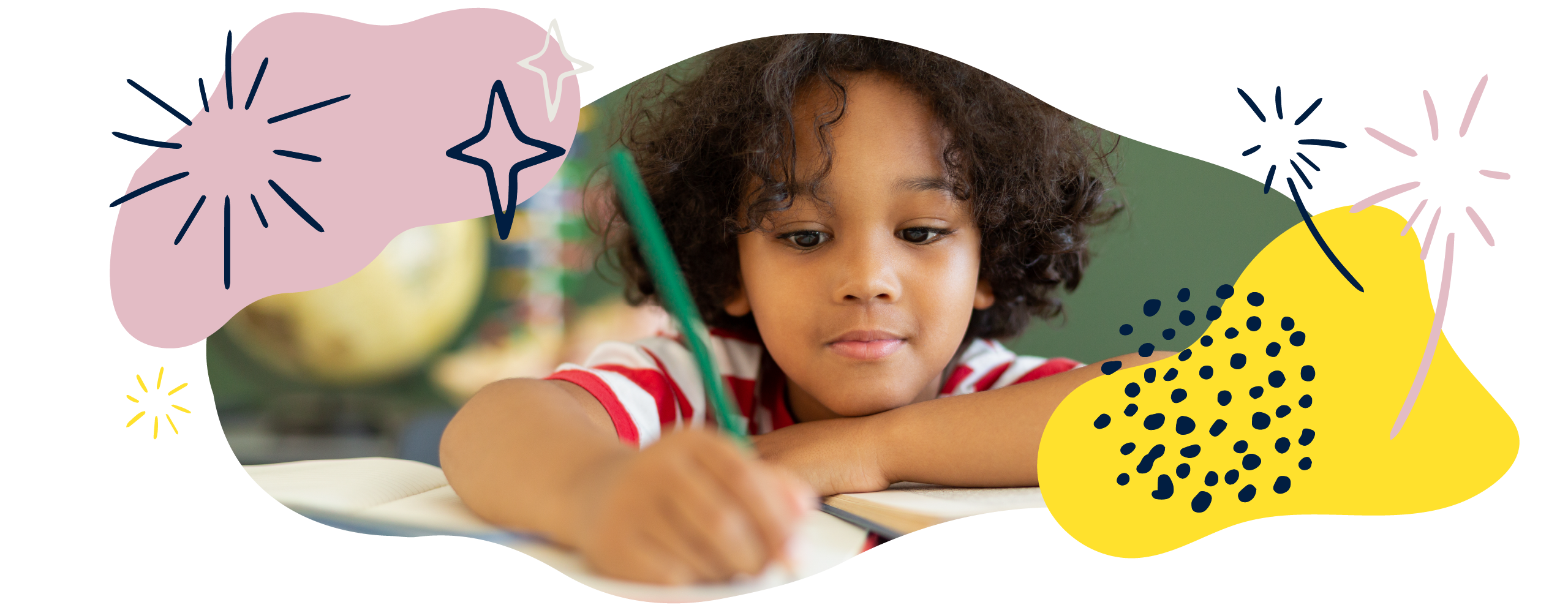Spelling in Year 4 (age 8–9)
In Year 4, your child will continue to develop their spelling. They will write and read more, learning more complex spellings as they go. They will use dictionaries to check words they are unsure of.
Read on to discover the National Curriculum expectations for spelling in Year 4, and to find out how you can support your child at home.
What your child will learn
Take a look at the National Curriculum expectations for spelling in Year 4 (age 8–9):
Using more prefixes and suffixes
Suffixes are morphemes (groups of letters that mean something on their own) that are added at the end of a root or root word to change the meaning. Prefixes are morphemes added at the front of a word. Over the course of Year 4, your child will learn about lots of prefixes and suffixes to spell longer words and change the meaning of those words.
Spelling more homophones
Homophones are words that are spelled differently and have different meanings, but are pronounced in the same, or almost the same, way. They are often confused in children’s writing. In Year 4, your child will learn the difference between:
accept/except, affect/effect, ball/bawl, berry/bury, brake/break, fair/fare, grate/great, groan/grown, here/hear, heel/heal/he’ll, knot/not, mail/male, main/mane, meat/meet, medal/meddle, missed/mist, peace/piece, plain/plane, rain/rein/reign, scene/seen, weather/whether, whose/who’s
Spelling words that are often misspelt
The National Curriculum in England provides a word list for Year 3 and Year 4 children of words that are often misspelt. Children will be taught to spell these words at school.
Practise spelling these words with our Spelling word list for Year 3 and Year 4.
Using the possessive apostrophe with regular and irregular plurals
Apostrophes are used to show possession (who or what something belongs to). These are different depending on whether there is one person or thing (singular) or more than one (plural).
When showing singular possession, an apostrophe and an -s are often added (for example, ‘Paul’s bike’ or ‘the girl’s voice’). If an -s is already at the end of a word to show a plural, the apostrophe is added after the -s (for example, ‘the girls’ voices’).
Singular possession: ‘the horse’s field’ (one horse).
Plural possession: ‘the horses’ field (more than one horse).
When a word ends in an -s, but isn’t a plural (for example, ‘Chris’ and ‘diplodocus’), the apostrophe can be added with or without the -s (‘the diplodocus’ swamp’ or ‘the diplodocus’s swamp’ – both are correct).
Some plural words are irregular, meaning that they do not end in an -s (for example, ‘children’, ‘team’). Here, an apostrophe and an -s are added after the final letter (‘the children’s toys’ or ‘the team’s boots’).
Checking spellings in a dictionary
How to help at home
There are lots of ways you can help your Year 4 child with spelling. Here are our top ideas.
1. Help with spelling homework
If your child is struggling with a spelling list they have been asked to learn, here are a few ideas to help:
-
- Remind your child to regularly check through their writing for spelling errors. They need to develop a feel for whether a word looks right. They could underline words they are not sure of and then check with a dictionary.
- Use over-pronunciation. So for Wednesday, encourage children to say Wed-nes-day as they write. There are lots of words which feature sounds that aren’t always pronounced clearly (such as words ending in -ed), and over-emphasising these while spelling them out can help fix the spelling in your child’s memory.
- Ask your child to write down the words that they need to remember how to spell. The physical act of writing the words by hand helps to anchor the spelling in children’s memories and encourages them to think about the letters that represent the sounds in the word. Typing the words into a PC or tablet isn’t as effective.
- Focus your child’s attention on the tricky bits in a word by asking them to highlight them. For example, show them that said has ‘ai’ in the middle and ask them to write the word, and then highlight or underline this part to help them remember. Few resources are more motivating than a highlighter pen for primary-aged children!
2. Play spelling games
Playing games can help children to learn about spelling in an enjoyable way. Watch grammar expert Charlotte Raby’s video ‘How can I help my child with grammar, punctuation and spelling?’ to see some fun and easy games:
Charlotte Raby offers her expert advice for helping your child develop their grammar, punctuation, and spelling skills at home.
For example, your child may have to learn ‘room took hoop foot book’. They could make up a silly sentence such as ‘The boy took his book across the room but got his foot caught in a hoop’. Why not draw illustrations to go with the sentences?
3. Find the right resources
Learning to spell is a gradual process and mastering English’s complex spelling system can take time. All children are different: some pick up spelling quickly, while others take longer. Whatever their level, we have lots of free spelling activities to support them.
Year 3 & 4 spelling word list

100 words children are expected to be able to spell by the end of Year 4.
